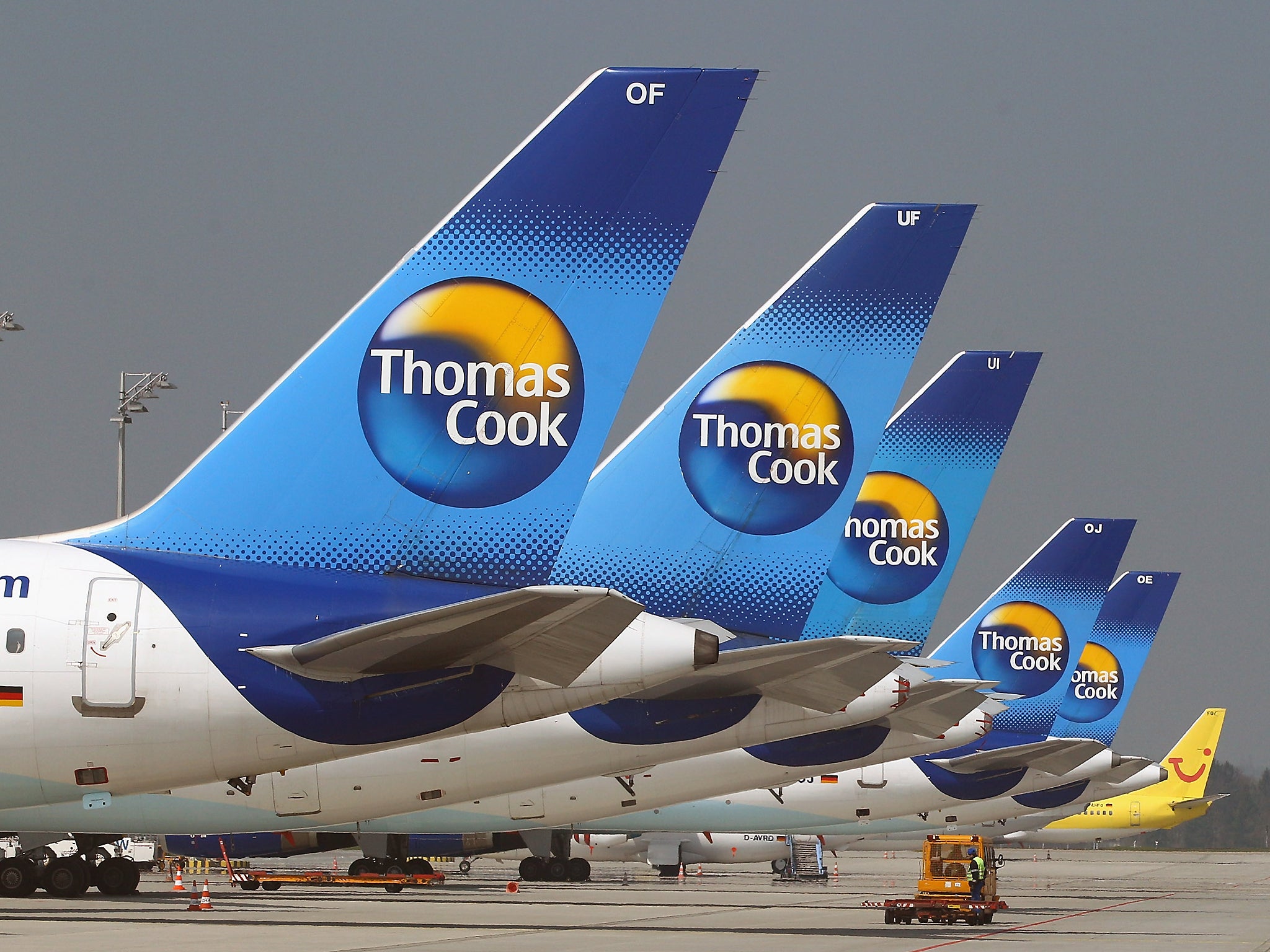Thomas Cook shares tumble by 18% after terror fears hit bookings
Thomas Cook has tried to battle the decline by shifting airline seats from Turkey, Tunisia and Egypt to the Canaries and mainland Spain, but it has not been enough to compensate

Thomas Cook shares have tumbled after the travel company warned that the number of bookings decreased due to terror fears.
Cook’s share price fell by more than 18 per cent, the lowest in three years, as the holiday company revealed summer bookings were down 5 per cent on last year due to falling demand for holidays to Turkey, Tunisia and Egypt.
Peter Fankhauser, chief executive of Thomas Cook, also admitted the company saw a sharp decline in demand in Belgium following the attack at Brussels airport in March.
The results coincided with EgyptAir Flight MS804 from Paris to Cairo crashing in unknown circumstances after going missing for a few hours.
Fankhauser said that demand for other destinations such as the Canary Islands and Spain has risen, but did not make up for the fall in bookings to Turkey, Cook’s second largest market in 2015.
“As we look ahead to our busiest period, Thomas Cook is trading well to destinations other than Turkey, with particularly strong bookings to Spain and the USA. However, demand for Turkey – our second largest market last year – remains significantly below last year’s levels,” he said.
Fankhauser also addressed the Corfu inquest, describing it as “a turning point” for the business.
“It was clear to me that we needed to change our mindset and put the customer back at the heart of our business,” he said.
Thomas Cook said it expected full-year underlying earnings to be between £310m and £335m, at the lower end of analysts’ expectations.
Increased security threats around the world have hit the travel industry this year.
The countries most impacted by global terrorism
Show all 11Holiday bookings to Turkey were down 40 per cent at Tui, the world’s largest package holiday business, over terrorism fears in February. However, the travel giant still expects to increase earnings by 10 per cent in 2016.
EasyJet swung to a pre-tax loss of £24 million ($35 million) from a profit of £7 million a year earlier, the company reported in May.
EasyJet halted flights to Sinai after the bombing of a Russian tourist jet in October, while November’s Paris shootings and the March 22 attacks on Brussels have further weighed on sales.
Subscribe to Independent Premium to bookmark this article
Want to bookmark your favourite articles and stories to read or reference later? Start your Independent Premium subscription today.

Join our commenting forum
Join thought-provoking conversations, follow other Independent readers and see their replies